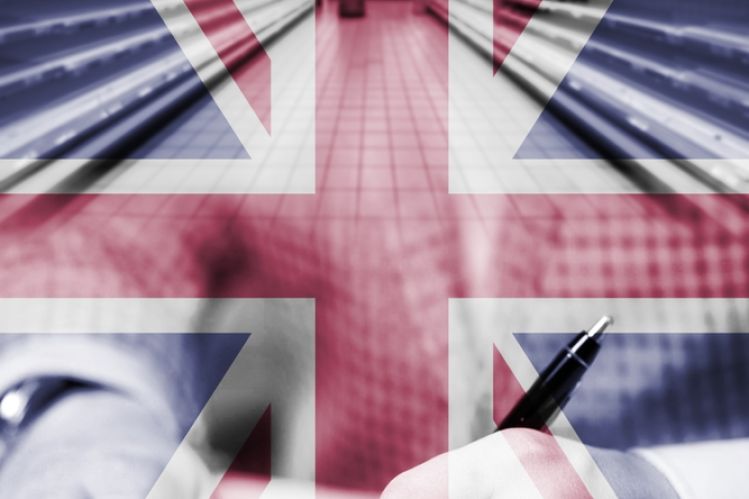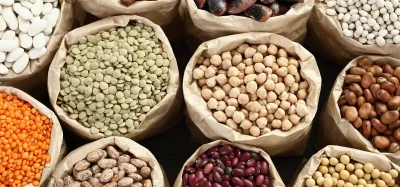The UK Government needs to value its food system
Posted: 7 October 2025 | Dr Clive Black | No comments yet
Dr Clive Black, Vice Chairman of Shore Capital Markets, delivers a blunt assessment of the UK Government’s failure to value its food system, warning that without serious change in policy and mindset, Britain risks undermining its own food security.


It seems an age ago when among the true heroes of the UK were the collective members of its food system. The coronavirus pandemic, which really struck home in March 2020, showed the true sense of purpose, importance and dedication of the members of this big and mighty industry – the largest industrial system in these Isles.
I remember the fabulous David Potts CBE, a truly committed and talented grocer, telling me of checkout ladies at Morrisons (a UK supermarket chain) walking five or six miles to and from work through rain and strong winds to serve shoppers in the absence of public transport; often working in the early days, with no barrier protection in-store. True heroes. Meanwhile, teachers, many of whom had the lowest exposure to the bug due to the low risk of transmission from children, decided to down tools – their unions showing a disgraceful sense of duty. Checkout assistants versus teachers, choose the heroes.
More pointedly for the British food system, the State has forgotten the true heroes that fed the nation…”
To be fair, at that difficult time, senior civil servants were stepping up to the plate, spending long days in Whitehall to develop quite revolutionary policies to navigate the pandemic; although their wisdom with hindsight has been subject to question, it was a truly challenging time. That said, the vast bulk of supposed servants of the State found the attraction of a lie in, no commute, working in the garden, walking the dog and so forth – many of the activities of a retired person – quite attractive. So too did their trade unions, which – coming up for six years later – most still do.
Meanwhile, the British State has gone from pillar to post – Johnson, Truss, Sunak and Starmer are perhaps not the best back four for any team sport, but collectively they’ve been a disaster for the UK. More pointedly for the British food system, the State has forgotten the true heroes that fed the nation; subsequently, one senses more through the sense of passive movement than malice, going on to challenge the basic capability to effectively feed the nation on an ongoing basis. In a world not just of potentially lesser biosecurity – when zoonosis around Avian flu, for example, keeps many scientists awake – but also more extreme weather, tariffs and war, among other factors, the British Government does not really treat food security seriously.
While the only policy of DEFRA – which could be considered a comical entity were it not so seriously incapable, incompetent and dysfunctional – that involves the term ‘food’ is set out within a context of security, the combined actions of the UK Government speak otherwise. Most fundamentally, the senior powers of politics and the civil service do not understand entrepreneurs, firms, or markets full stop – neither do they appear to really care. Such a flaw is serious because business needs to make an economic return if it is to invest in everything from ensuring factories are up to specification to meet microbiological standards through to ensuring adequate supplies of water into a factory and clean liquids leaving.
The Government sees the food system business as a money tree.”
While the State is right, in many respects, to require through regulations and multi-agency guidelines and standards that firms must comply, it fails to acknowledge that such requirements, which have become relentless, do so at a cost; a cost for which a profitable business must pay. Furthermore, the State does not provide an appropriate service to businesses to enable them to meet such mandatory and guided requirements. It fails to offer a skilled workforce, a competitive energy source, functional planning, or a satisfactory trading backdrop; ask every British food company about the challenge of recruiting appropriate labour; see the raw frustration of bakers as they attempt to surmount elevated energy costs, ask Cranswick about the planning fiascos in East Anglia, and Associated British Foods about the simple dysfunctionality of the State around the Vivergo crisis, undermined by the US trade accord, a plant now being deconstructed.
More to the point, as I argued with respect to the grocers and food inflation, the Government sees the food system business as a money tree, but when business asks the simple question, “what do I get for my taxes, the fees, the consultations, the bureaucracy?” from a public sector where productivity has collapsed, then its sticks in the throat. The industry is rightly becoming more belligerent with Government. Food inflation, running at over 5 percent in autumn 2025, is largely a State construct – the obscenest raid after elevated National Insurance Contributions is Extended Producer Responsibility.
The British food system deserves better. It needs a UK Government that reflects upon what the domestic food system does for the nation, day in, day out.”
This is not right. The British food system deserves better. It needs a UK Government that reflects upon what the domestic food system does for the nation, day in, day out. It deserves sincere thanks and, in the same vein, to be asked how government can help to increase domestic production to make us more, not less, secure, in a way that builds the human capital and financial return of a great but battered industry, so that it can fulfil its economic potential too.
To be clear, improving the availability of safe, high-quality food in ways that meet societal and regulatory requirements means that food will have to be priced higher. Such requirements cannot involve a race to the bottom, that leads to compromised standards, business failure and the simple importation of more goods. This undermines the whole principle of security. Rather, it needs a well-invested, confident system that attracts the best people, grows investment and fulfils potential. All that requires a major change not just of attitude but probably structures and personnel too; DEFRA folks are simply not fit for purpose on this front and I, once again, call for a Minister to coordinate food policy in the cabinet, because the fundamentality of food makes this essential.
The British food system does not depend upon Government – if it did, it would be insolvent by now. Indeed, it is amazing that the UK’s food system is as advanced and robust as it is, given the State-based headwinds. Just imagine its potential if the Government’s attitude, capability (better people) and policy support allowed it to flourish while meeting the needs and wants of the society that the food system implicitly supports.
Back to reality, dream on eh…
About the author


Related topics
COVID-19, Food Security, Recruitment & workforce, Regulation & Legislation, Supply chain, Trade & Economy
Related organisations
Department for Environment Food and Rural Affairs (Defra), UK Government









